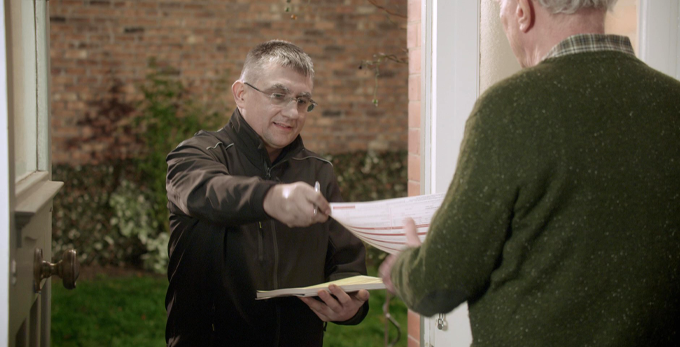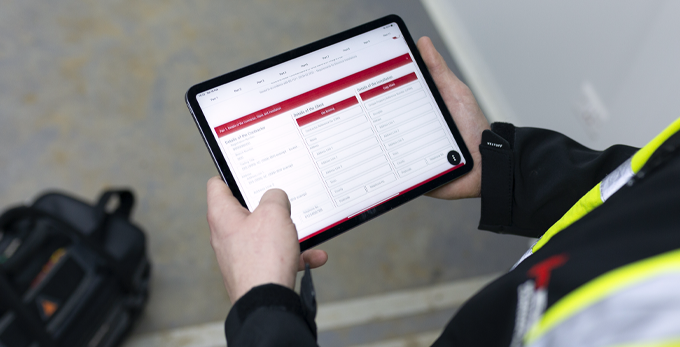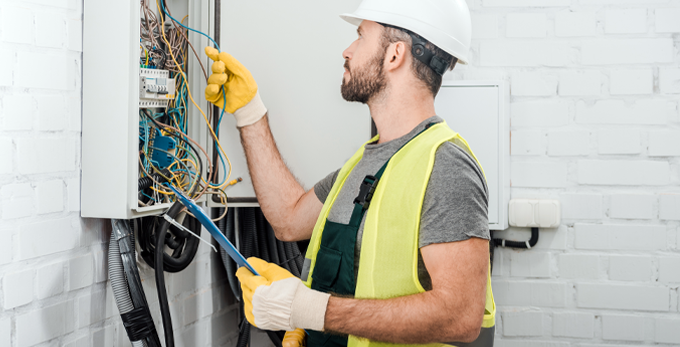How to work with your tradesperson
At NICEIC, we provide resources to help guide you through the process of working with your chosen contractor. Our guides provide tips on how to communicate effectively with them and how to ensure that they complete the job properly.
What questions should I ask an electrician?
Getting any tradesperson in can be daunting, especially when there is technical jargon involved. Finding the right person for the job is important and these tips can help you:
First
- Check that the certified contractor is registered with a government-approved competent person scheme like NICEIC. To find an NICEIC-certified contractor use our find a trusted tradesperson search facility
- Ask for customer references
- Check that the company has public liability insurance of at least £2 million (this is a prerequisite of being with NICEIC)
Then
- Be clear about the work you want done and obtain at least three written quotations from different contractors
- For larger projects we recommend that you prepare a written summary of the work required. This will establish a clear understanding of what you want to be completed and helps you prepare quotes on a like-for-like basis


What is a written summary of electrical work?
It’s a document that outlines the type and amount of work you would like undertaken.
Sometimes it can be useful to include a drawing, even if it’s a rough sketch to show your plans for the layout of the area where you want the work showing where you want new or replacement plug sockets, light fittings and so on.
This can be used to help you compare quotes and as a reference point when the work is taking place.
Should I get a contract in place?
Yes. We recommend that you get a contract in place – it can protect you and the contractor.


Electrical certificates: what are they for?
Electrical certificates provide you, as the person responsible for the safety of an electrical installation, with a declaration that the new installation, or alteration or addition, is safe to use at the time it was put into service.
Why are they important?
At certain times, like when you are selling a property or renting it out – you may be asked to provide certificates relating to the electrics in your property.
Keeping hold of these certificates provides a basis for any further inspection and testing, as they can help save on costly exploratory work which might otherwise be needed in future.
In the event of a claim that injury or fire was caused by an electrical installation, certificates are documentary evidence which help show that the installation had been installed to a satisfactory standard of safety.
You may be asked to provide the following certificates when selling or renting your property in England and Wales:
- Electrical Installation Certificate (EIC)
- Minor Electrical Installation Works Certificates (MEIWC)
- Building Regulations Certificate of Compliance
EIC or MEIWC?
Electrical Installation Certificates (EICs) and Minor Electrical Installation Works Certificates (MEIWCs) provide you, as the person responsible for the safety of an electrical installation, with a declaration that the new installation, or alteration or addition, is safe to use at the time it was put into service.
The EIC will show whether the electrical work that has been carried out is:
- new - applies where the whole installation has been installed as new, if a complete rewire has been carried out.
- addition - applies if an existing installation has been modified by adding one or more new circuits.
- alteration - applies where one or more existing circuits have been modified or extended (for example to add a socket), or items such as a consumer unit (fuse-box) and switching equipment have been replaced.
An EIC must be issued for all new electrical installations. It may also be required for an alteration or addition to the installation – depending on whether or not a new circuit has been installed. Where an alteration or addition is carried out but does not include a new circuit, a MEIWC or an EIC may be used.
You should always use a registered contractor who will issue the correct certification for the work they undertake. To find a NICEIC contractor, use our find a trusted tradesperson search facility.


Electrical Installation Condition Report (EICR)
Every electrical installation deteriorates with use and age, so it is important for installations to be maintained in a safe and serviceable condition. An EICR is an electrical survey to reveal if electrical circuits are overloaded, find potential hazards in the installation, highlight any lack of earthing or bonding and carry out tests on the fixed wiring of the installation.
Also known as a Periodic Inspection Report (or PIR), it's a report designed to establish the overall condition of the electrical installation. Any deficiencies recorded on the report may then be remedied so that the installation can continue to be safely used.
Scotland
In Scotland you may need a building warrant for certain types of work. If that is the case, then look for a NICEIC contractor who is on the Certifier of Construction Scheme. They will be able to speed up the warrant process and issue a Certificate of Construction.
Wherever you are having work done your NICEIC contractor will be able to advise you in more detail about the requirements and certification needed for your project.

What is notifiable work?
In England and Wales certain types of electrical work must either be reported to your local building control body before being started, or be carried out by a registered electrical contractor who will notify the work on completion.
This includes some work in bathrooms and kitchens.
Need to provide a Building Regulations Certificate of Compliance certificate?
In England and Wales any domestic electrical installation work notified by your NICEIC electrical contractor to the Local Building Control Body is searchable through the site www.checkmynotification.com.
Need a replacement copy of a certificate to show that your property meets Part P of the Building Regulations?
You can do this via www.checkmynotification.com.
In the unlikely event that you are unhappy with work carried out by a NICEIC-registered business, we are here to help. All work carried out by NICEIC-registered tradespeople is backed by our unique Platinum Promise*.
*Backed by the NICEIC Platinum Promise: this means that we will step in and address any issues with technical standards of the work you commission(subject to our terms and conditions )
